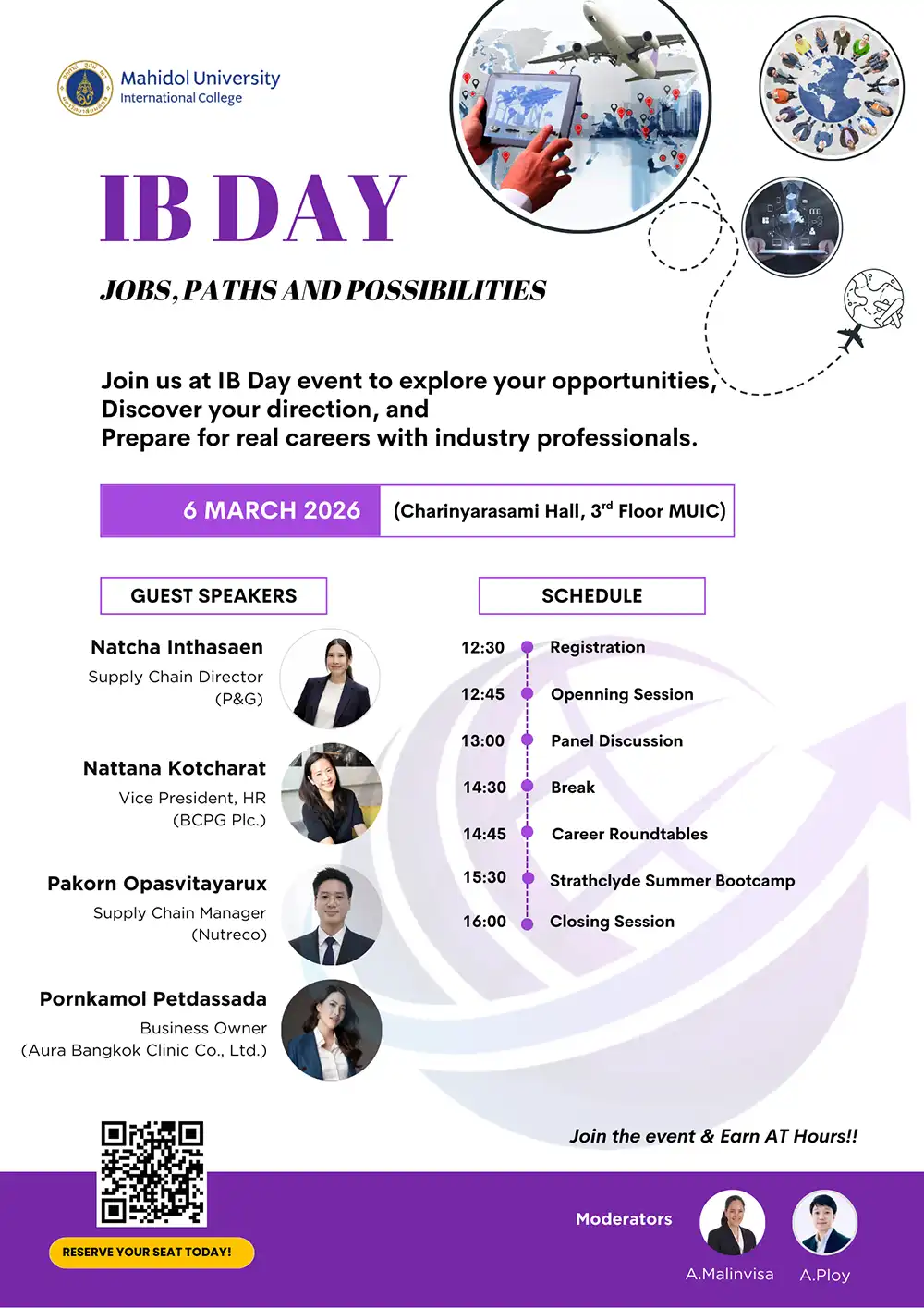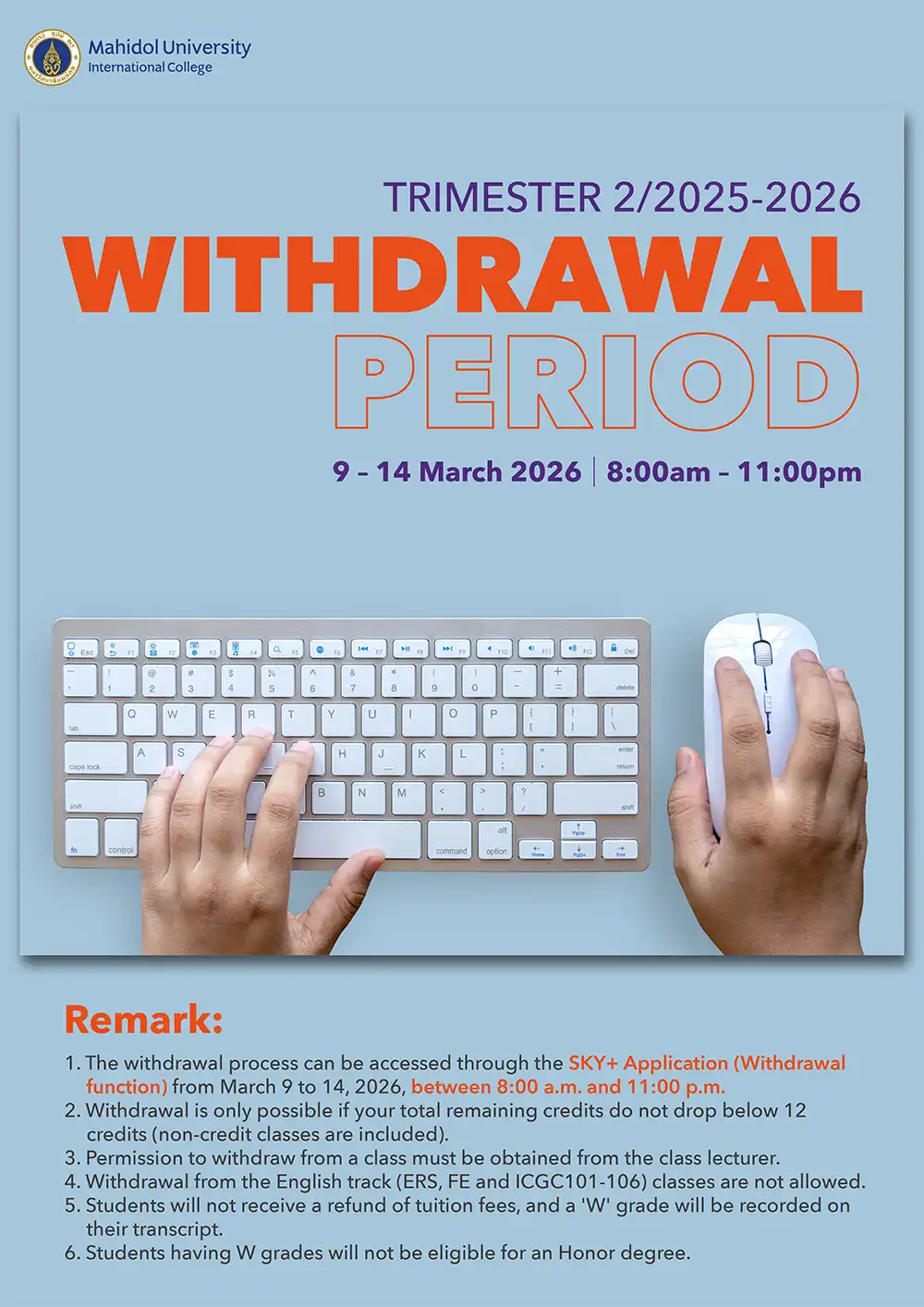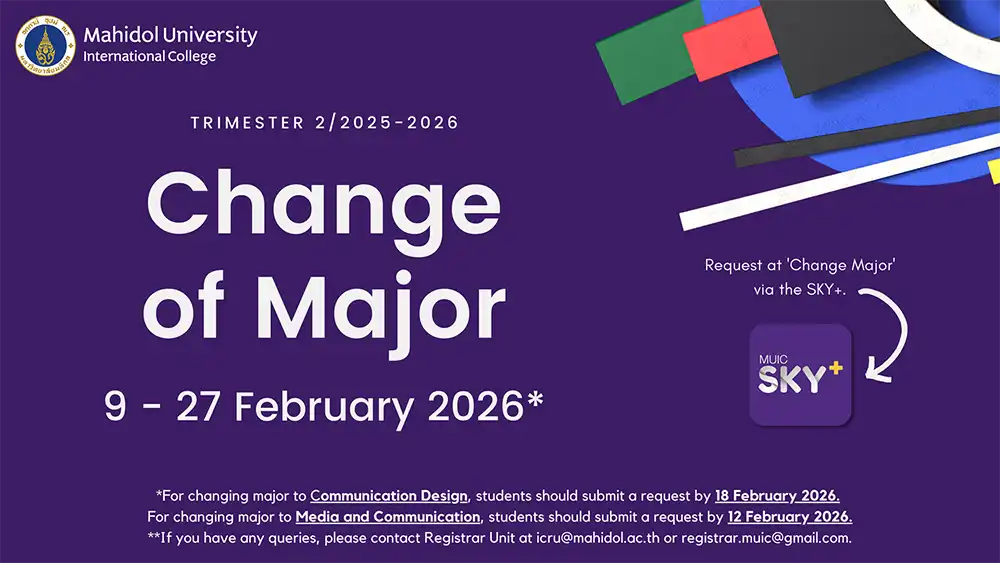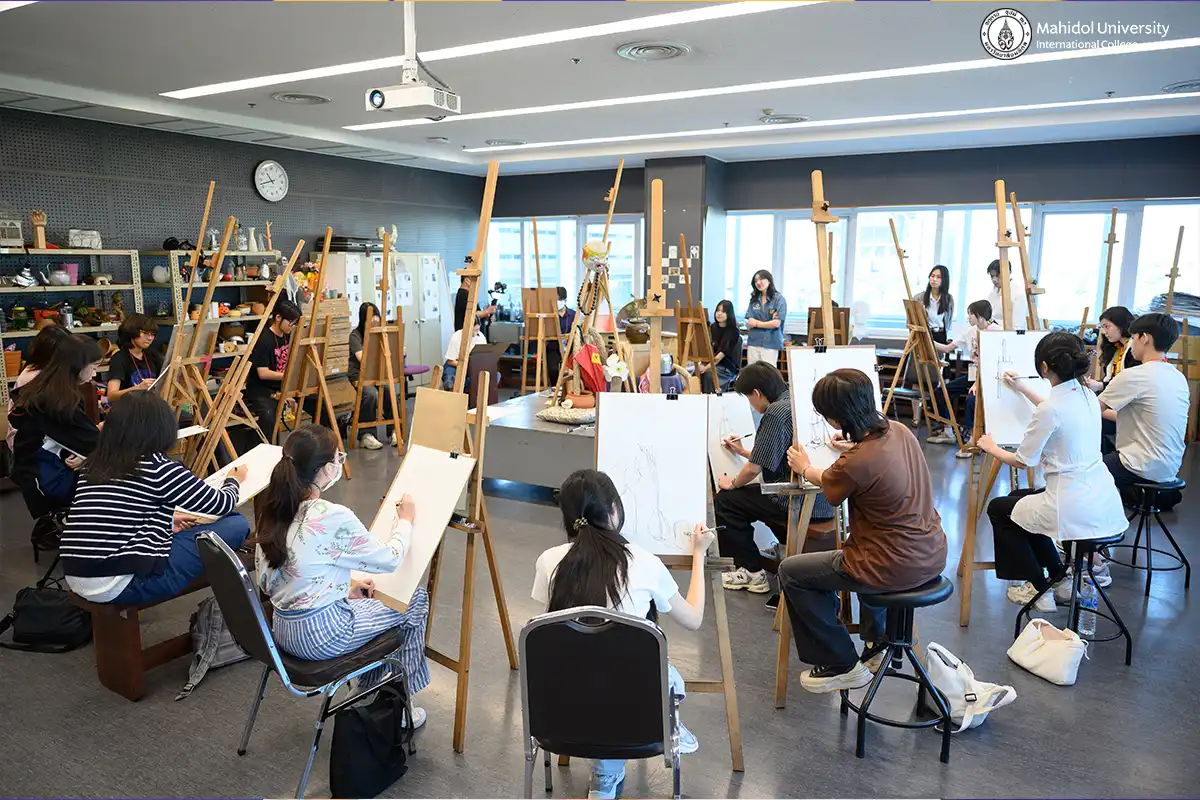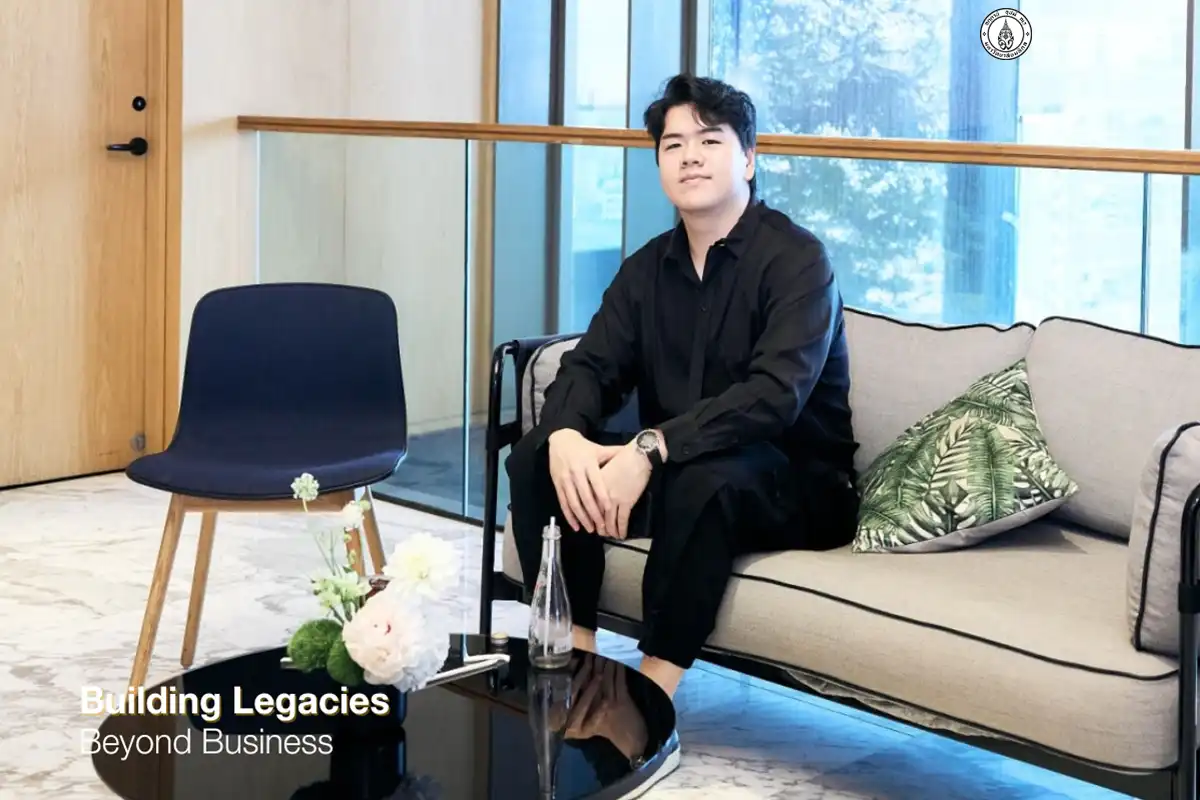Please choose a news and article category.
Recent MUIC Events
IB DAY 2026!
Withdrawal Period for Trimester 2/2025–2026
Change of major Trimester 2/2025-2026
MUIC Job Fair 2026
MUIC 360 Degrees
Human Factor Enhances Creativity of CDP Students
December 19, 2024 2024-12-19 4:28Human Factor Enhances Creativity of CDP Students
You may have a talent for drawing, an eye for the right color combinations or the gift of easily conjuring a vision for your soon-to-be works of art but where would you be without the guiding hands of your mentor and the warm support of your friends?
A clear example of the importance of the human factor in art education can be found in the Communication Design Program (CDP) of Mahidol University International College (MUIC), where teachers gently guide their students in honing their talents and skills and where students provide each other valuable peer support.
Here are two students who shared their thoughts on how CDP is turning them into the best version of themselves:

Mr. Plu Thannasarnchinda
“All of our professors are very supportive of us, emboldening us to go beyond what we’re good at, always pushing us to be better. They provide us with so many opportunities, whether it is joining exchange programs or learning new skills or participating in collaborations with other organizations.
“My friends are just as important to me as my professors are. Having friends who are willing to give you constructive criticism can really help push you to become a better designer. The best thing about CDP is just how supportive everyone is to each other. While there is certainly a bit of competitive pressure, in the end, we always help each other out regardless of our skill levels.
“So what’s the best thing in CDP? I’d argue that aside from our respected ajarns, it’s the friendships and relationships I’ve made along the way, as corny as that may sound. I wouldn’t trade it for anything, that’s for sure.”

Ms. Thanrada Tinnapobphokin
“When people ask why I chose to enroll in the Communication Design Program, I often say it helps me to better understand both myself and the people I want to communicate with. This program also teaches me how to express ideas visually with the bare minimum of words.
“One key thing this program focuses on is research. Before we create a project, we first need to understand the people we are trying to communicate with.
This means not just knowing who they are, but also understanding their age, behavior, interests, likes and dislikes, and the problem we aim to solve with our design. Thanks to this process, I’ve become much better at paying attention to small details. I can now express my ideas more clearly compared to when I was a freshman.
“Another important part of the program is teamwork. In our classes, we work in groups, just like in real life, learning how to use each member’s strengths and solve challenges together. At first, working in groups wasn’t easy, but over time, I’ve become more organized, professional, and respectful towards others. Our professors also help us improve by giving feedback, so we can grow using our strengths and overcoming our weaknesses.
“Overall, studying in this program has really helped me grow as an artist and as a person. It has improved my design skills and critical thinking skills, and has given me practical experience that I can use in the future.”
These reflections by Mr. Plu Thannasarnchinda and Ms. Thanrada Tinnapobphokin are undoubtedly shared by their classmates and friends at CDP. One’s development can only grow unimpeded if nurtured in a caring environment.
Do you find happiness in expressing yourself through art? Then joining the Communication Design Program might just be for you. Learn more about this program by clicking this link: https://muic.mahidol.ac.th/eng/programs/undergraduate-programs/communication-design-and-media-communication/communication-design/


